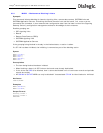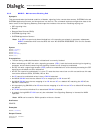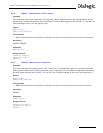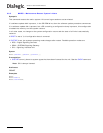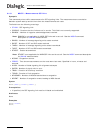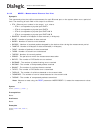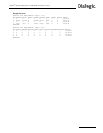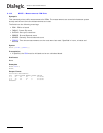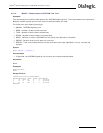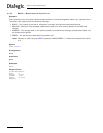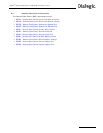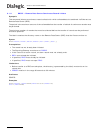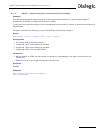
92
Chapter 6 Command Definitions
6.10.2 MSEPP – Measurement Ethernet Port Print
Synopsis
This command prints the traffic measurements for each Ethernet port on the system taken over a period of
time. The meaning of each field in the output is as follows:
• ETH - Ethernet port number in the range 1 to 4, where:
— ETH=1 corresponds to physical port ENET 1
— ETH=2 corresponds to physical port ENET 2
— ETH=3 corresponds to physical port ENET LNK A
— ETH=4 corresponds to physical port ENET LNK B
• RXKBTYE - Number of kilobytes of data received (in kilobytes)
• RXPKT - Number of packets of data received
• RXERR - Number of receive errors detected
• RXDROP - Number of received packets dropped by the device driver during the measurement period
• TXKBTYE - Number of kilobytes of data transmitted (in kilobytes)
• TXPKT - Number of packets of data transmitted
• TXERR - Number of transmit errors detected
• TXDROP - Number of transmit packets
• PERIOD - The period over which the measurement was taken
• RXFIFO - The number of FIFO buffer errors received
• RXFRAME - The number of packet framing errors received
• RXCOMP - The number of compressed packets received
• RXMULT - The number of multicast frames received
• TXFIFO - The number of FIFO buffer error transmitted
• TXCOLLS - The number of collisions detected on the transmit side
• TXCARRIER - The number of carrier losses detected on the transmit side
• TXCOMP - The number of compressed packets transmitted
Note: Values are reset using the RESET parameter. MSEPP:RESET=Y; resets the measurement values
to 0.
Syntax
MSEPP:[RESET=,][PAGE=,];
Prerequisites
None.
Attributes
None.
Examples
MSEPP:RESET=YES,PAGE=2;
MSEPP;




